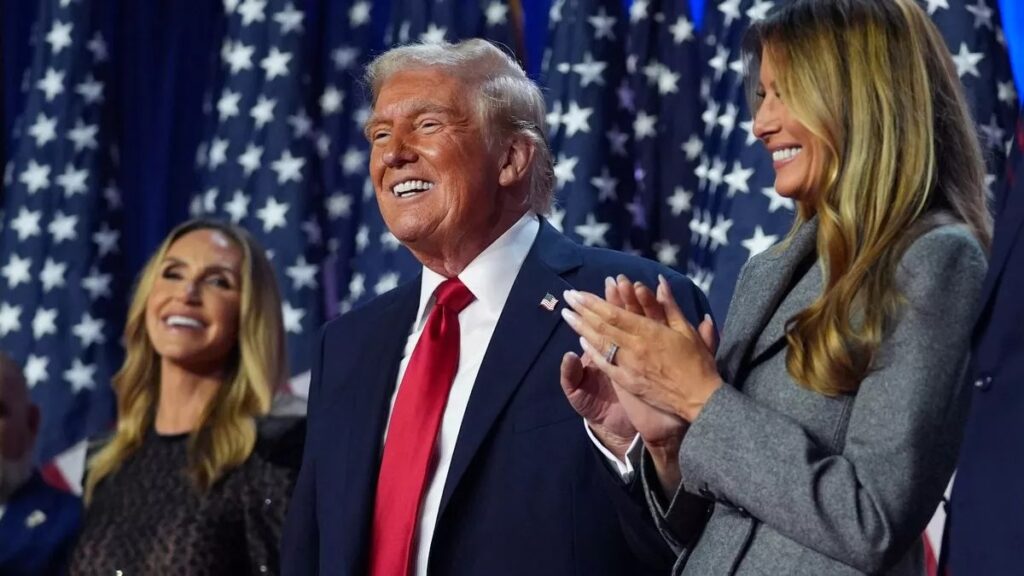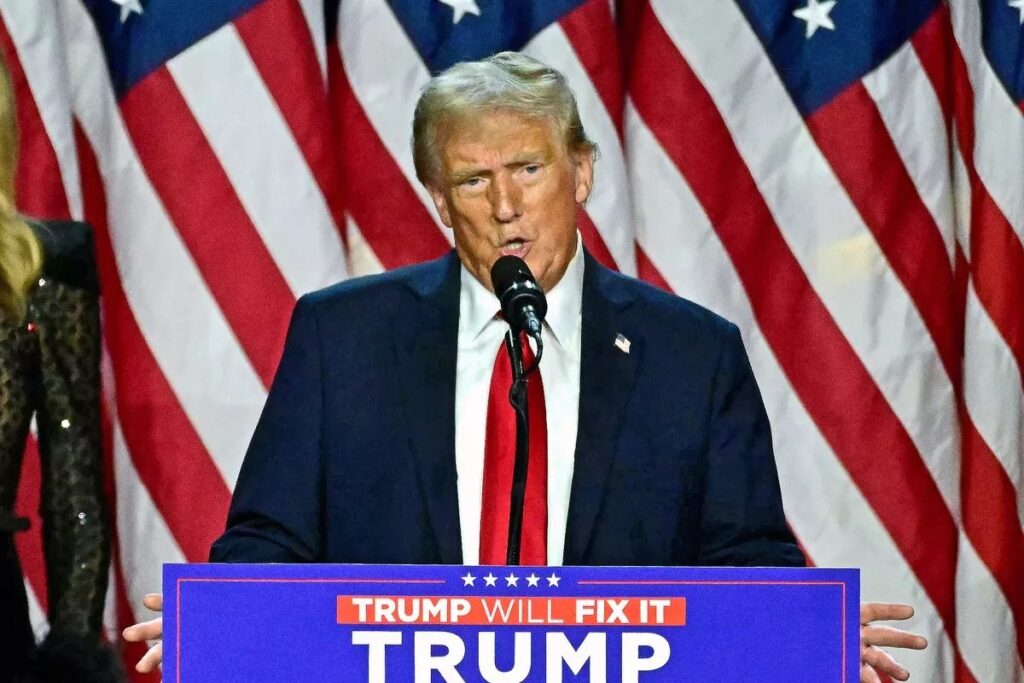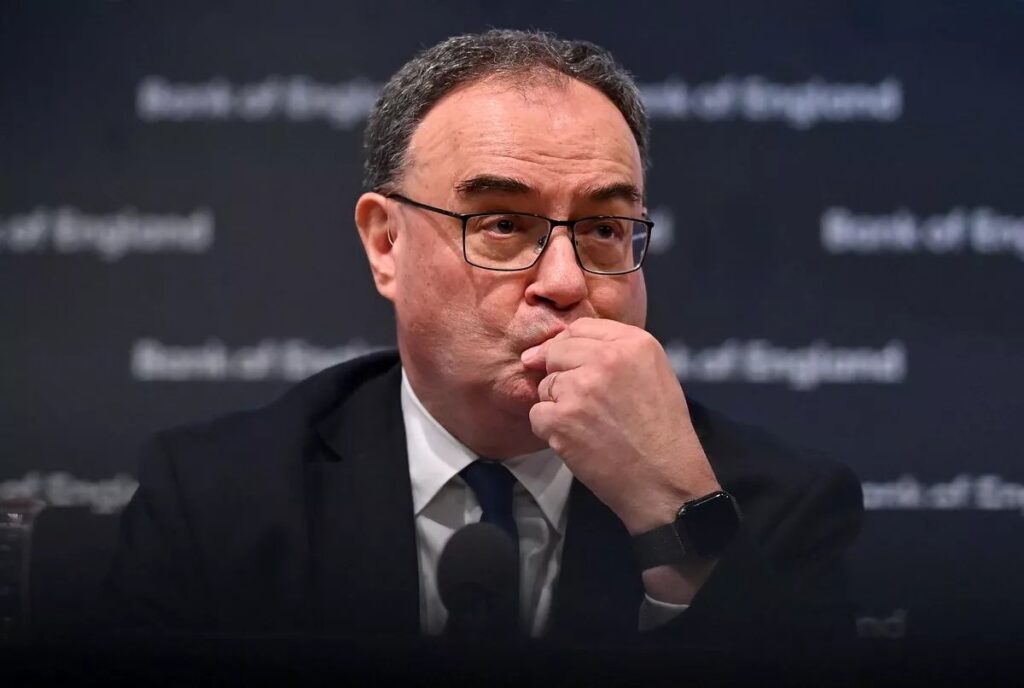Experts warn that a Donald Trump victory in the US presidential election could halve UK economic growth and raise borrowing costs.

A million British households are expected to pay the price of Donald Trump’s victory in the US presidential election.
Experts warn that UK economic growth could plummet if President Trump implements a series of threatened measures, including import tariffs. The think tank National Institute of Economic and Social Research (NIESR) also warned that such measures could stoke inflation and push interest rates up again.
All this comes amid fears that a Trump victory could trigger a new wave of global inflation just as it was beginning to get under control. During his election campaign, he promised to impose tariffs of 10-20% on foreign imports and up to 60% on Chinese goods. Analysts warned that this would be “bad news for Europe and the UK”.
“The UK is a small and open economy and will be one of the hardest hit,” said Ahmet Kaya, an economist at NIESR. NIESR warned of the impact of tariffs on UK goods and the impact of higher prices on UK goods. The weaker pound against the US dollar could cause the UK economy to grow just 0.4% next year, down from the previously expected 1.2%, and growth in 2026 could barely grow from 1.4%. These projections are based on Trump imposing a 10% tariff on all goods and services imported into the US, with the rate potentially being reduced on certain products to mitigate the impact.
If the new president follows through on his threat, UK inflation and therefore interest rates could rise, according to NIESR. NIESR had forecast average UK inflation to be 1.8% next year but now says it could rise to 5.2%.
The Bank of England is expected to cut interest rates from 5% to 4.75% on Thursday, but economists have already questioned future cuts following last week’s budget. NIESR expects the Bank of England’s key interest rate to average 4.1% next year, but now says it could rise to 6.8% if President Trump pushes through tariffs to curb a sharp rise in British inflation, averaging 5.1% by 2026. Such an interest rate increase would be a major blow to millions of mortgage borrowers and other borrowers who are already struggling with high bills, many of whom had hoped the cost of home equity loans would fall.

Chris Beacham, chief market analyst at online trading platform IG, warned that Trump’s policies could delay future interest rate cuts by the Federal Reserve, with the associated knock-on effects. “If the Fed doesn’t cut rates, we expect the dollar to strengthen further,” he said.
“This is causing the pound to weaken and raising the cost of imports into the UK,” Beauchamp said, warning that the threat of so-called imported inflation was a “nightmare” for the Bank of England, as inflation was rising at a time when it was just starting to rise. If she appears to be in control, she may do so. That could lead to the bank reversing its rate cuts next year, which would be a blow to borrowers.
This comes as an expected victory for Trump in the US presidential election shocked financial markets.
The dollar rose against a basket of currencies, including the pound, on hopes that Trump’s policies could lead to higher inflation in the US. The dollar rose 1.3% against the pound to a two-month high of $1.287, its highest gain in two years.
In the UK, the FTSE 100 index rose 125 points to 8,297 in early trade. A stronger dollar is expected to boost earnings for the UK-listed multinational companies in the index, which earn most of their revenue overseas.

US government borrowing costs also rose, with the 10-year bond yield (effective interest rate) hitting a four-month high of 4.47%. The equivalent figure for the UK rose sharply after last week’s budget but remains at around 4.5%.
Bitcoin rose 8.54% to a record high of $75,060 as Trump is seen as a more vocal supporter of cryptocurrencies than Kamala Harris. “Investors are bracing for increased tariffs and immigration crackdowns,” said Susanna Streeter, head of treasury and markets at Hargreaves Lansdown. These measures are seen as inflationary and could lead to higher interest rates for years to come.”
“Trump’s more rebellious approach to trade is likely to push the US further away from global institutions and the rules-based order that has been built up over decades. At the same time, a Trump presidency has raised hopes that regulation of big tech and big finance will be relaxed,” said Russ Mould, investment director at City firm AJ Bell. The campaign is generally seen as inflationary.

